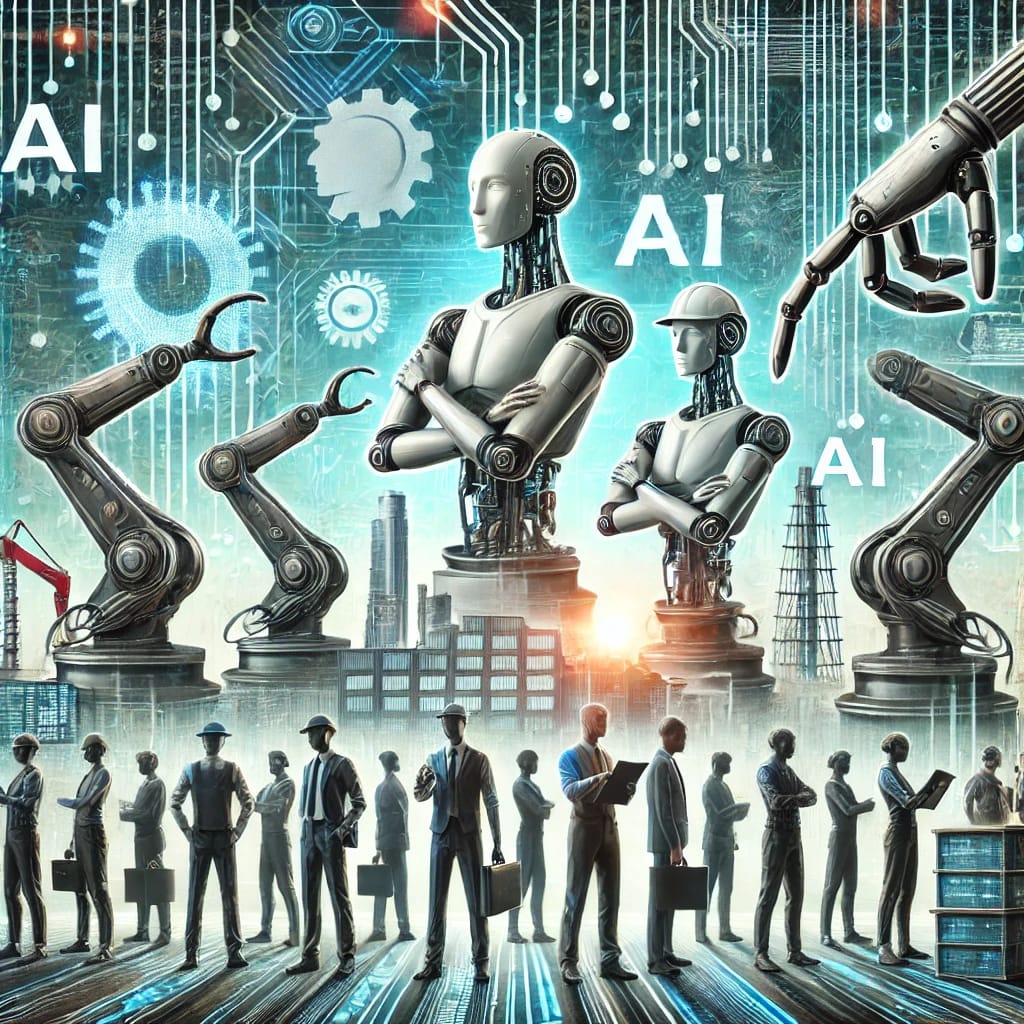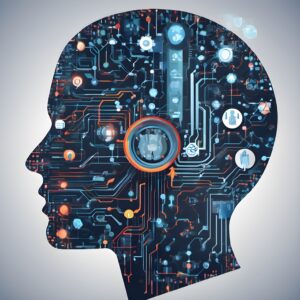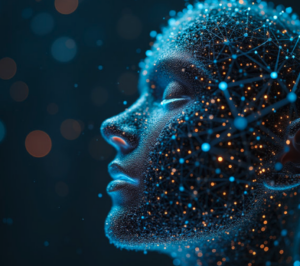
Explore how artificial intelligence is shaping society, from transforming industries to creating new challenges. Learn about AI’s benefits, risks, and the path toward ethical adoption.
Artificial Intelligence (AI) has emerged as a transformative force in the 21st century, with far-reaching implications for nearly every facet of society. The rapid development of AI technologies has revolutionized industries such as healthcare, finance, manufacturing, and entertainment, offering both unprecedented opportunities and significant challenges.
As AI continues to evolve, it raises complex questions about its potential to disrupt economies, transform jobs, and even redefine societal norms. While AI promises enhanced productivity, personalized services, and breakthroughs in science and medicine, it also brings with it risks related to privacy, job displacement, inequality, and ethical dilemmas.
In this article, we will delve into the diverse benefits that AI brings to society, as well as the challenges it presents. We will also discuss how we can navigate these complexities and ensure that AI is used responsibly to improve lives while minimizing negative consequences.
The Benefits of AI on Society
1. Improved Healthcare Outcomes
AI is revolutionizing the healthcare industry by improving diagnosis accuracy, personalizing treatments, and streamlining administrative tasks. For example, AI-powered diagnostic tools can analyze medical images with exceptional precision, helping doctors detect conditions such as cancer, heart disease, and neurological disorders earlier than traditional methods. Machine learning models can predict patient outcomes, allowing healthcare providers to offer more targeted treatments, improving overall patient care.
AI also holds promise for addressing global health challenges. AI-based solutions are already being used to track disease outbreaks, predict epidemics, and improve the efficiency of vaccine distribution. By processing vast amounts of medical data, AI can expedite the development of life-saving treatments and therapies, ultimately saving lives and reducing healthcare costs.
2. Enhanced Productivity and Efficiency
AI has the ability to increase productivity in industries ranging from manufacturing to customer service. In manufacturing, AI-powered robotics and automation systems can handle repetitive tasks, reducing human error and increasing the efficiency of production lines. These systems can also adapt to changes in demand, optimize supply chains, and predict potential equipment failures before they happen, reducing downtime.
In customer service, AI-driven chatbots and virtual assistants can handle routine inquiries, allowing human agents to focus on more complex issues. This reduces wait times and improves overall customer satisfaction. In industries like transportation, AI is also enabling the development of self-driving vehicles, which have the potential to revolutionize logistics and reduce transportation costs significantly.
3. Personalized Experiences
One of the most visible applications of AI is in the creation of personalized experiences. Companies in e-commerce, entertainment, and marketing have leveraged AI to offer consumers tailored recommendations based on their behaviors, preferences, and purchase history. Netflix, Spotify, and YouTube all use AI algorithms to suggest movies, shows, music, and videos that are likely to appeal to individual users, creating more engaging and customized user experiences.
AI is also being applied in education to create personalized learning paths for students. Platforms like Coursera and Duolingo use AI to adapt lessons to a student’s progress, offering individualized support and feedback. This helps students learn at their own pace, improving educational outcomes.
4. Solving Global Challenges
AI is increasingly being used to address global problems, from climate change to poverty. In agriculture, AI is being applied to optimize crop production, reduce pesticide use, and monitor soil health, helping farmers increase yields and reduce environmental impact. AI-driven systems can also predict weather patterns and track the effects of climate change, providing valuable data for policymakers and organizations working to mitigate its effects.
In energy, AI systems are optimizing energy consumption, from predicting demand to managing renewable energy sources more efficiently. By reducing energy waste and improving grid management, AI has the potential to significantly contribute to sustainability efforts and help mitigate the global climate crisis.
The Challenges of AI on Society
1. Job Displacement and Workforce Disruption
As AI automates more tasks, many fear that it will lead to widespread job displacement, particularly in industries that rely on manual labor or repetitive tasks. According to some estimates, automation could replace millions of jobs over the next few decades, especially in sectors like retail, transportation, and manufacturing. This creates the risk of economic inequality, as workers in lower-skilled jobs may find it more difficult to transition to new roles in a rapidly changing economy.
However, AI is also expected to create new jobs, particularly in fields related to AI development, data science, and machine learning. To mitigate the impact of job displacement, governments and businesses must invest in reskilling and retraining programs to help workers transition to new careers and industries.
2. Privacy and Security Risks
As AI systems rely on vast amounts of data, concerns about privacy and data security are growing. AI applications such as facial recognition, location tracking, and social media analysis raise significant privacy concerns, particularly when personal data is collected without explicit consent. In some cases, AI systems may process sensitive data in ways that individuals are not aware of, leading to potential privacy violations.
Additionally, AI systems can be vulnerable to cybersecurity threats. Adversarial attacks, where malicious actors manipulate input data to deceive AI models, can compromise the integrity of AI-driven systems. Ensuring that AI systems are secure and that individuals’ privacy is protected is a major challenge that must be addressed as AI continues to permeate everyday life.
3. Bias and Discrimination
AI systems are only as unbiased as the data used to train them. If the training data reflects existing biases in society, the AI system will likely perpetuate those biases. This is particularly concerning in areas such as hiring, criminal justice, and healthcare, where biased algorithms can lead to discriminatory outcomes.
For instance, studies have shown that AI recruitment tools can favor male candidates over female candidates due to biased historical data. Similarly, predictive policing algorithms may disproportionately target minority communities, reinforcing racial biases. Addressing AI bias requires using diverse datasets, auditing algorithms regularly for fairness, and designing AI systems with inclusivity in mind.
4. Ethical and Moral Implications
AI presents numerous ethical dilemmas. For example, in autonomous vehicles, AI must make split-second decisions that could impact human lives—such as deciding whether to swerve and hit a pedestrian or stay on course and hit another vehicle. These moral decisions raise questions about who is responsible for the actions of an AI system and how decisions should be made in situations where human lives are at stake.
Moreover, the development of AI systems that make decisions in areas such as credit scoring, healthcare, and insurance raises concerns about fairness and accountability. Should AI be allowed to make decisions that affect people’s lives without human oversight? These ethical questions require thoughtful consideration and governance.
5. Lack of Regulation and Oversight
The rapid advancement of AI technology has outpaced the development of regulations and ethical guidelines. As a result, AI systems are being deployed in various sectors without sufficient oversight or standardization. This lack of regulation increases the risk of misuse, whether intentional or accidental.
Governments and international bodies are beginning to address this gap, but there is still no universal framework for AI governance. Ethical guidelines, transparency standards, and clear accountability mechanisms must be established to ensure that AI is used responsibly and in ways that benefit society as a whole.
Navigating the Benefits and Challenges of AI
To maximize the benefits of AI while minimizing its risks, society must adopt a balanced and strategic approach. Here are several ways to navigate the complexities of AI’s impact:
1. Investing in Education and Reskilling
Governments and organizations must invest heavily in education and reskilling initiatives to prepare the workforce for an AI-driven economy. This includes offering accessible training programs in fields like data science, machine learning, and digital literacy. Providing workers with opportunities to learn new skills will enable them to thrive in the AI-enabled future and reduce the risk of widespread job displacement.
2. Ensuring Fairness and Inclusivity
AI developers and organizations must prioritize fairness and inclusivity when designing AI systems. This involves ensuring that training data is diverse and representative, developing algorithms that are free from bias, and conducting regular audits to identify and mitigate potential discrimination. Additionally, creating diverse development teams will help ensure that AI systems are built with a broad range of perspectives in mind, which is key to reducing bias.
3. Promoting Transparency and Accountability
For AI to gain public trust, it is essential that AI systems are transparent and accountable. Developers must strive to create AI systems that users can understand and trust, providing clear explanations of how decisions are made. Moreover, accountability frameworks should be put in place so that individuals and organizations can be held responsible for the actions of AI systems, particularly when they lead to negative outcomes.
4. Establishing Ethical Guidelines and Regulations
Ethical guidelines and regulatory frameworks for AI are crucial to ensure that these technologies are developed and deployed responsibly. Governments and international organizations must work together to create comprehensive regulations that address privacy concerns, ensure fairness, and protect individuals from harm. Industry leaders and policymakers must collaborate to build a framework that ensures AI benefits society while minimizing its potential risks.
5. Encouraging Collaboration Between Humans and AI
Rather than replacing humans, AI should be seen as a tool to augment human intelligence. Collaborative AI can enhance creativity, decision-making, and problem-solving by combining human expertise with AI’s data processing capabilities. Encouraging collaboration between AI and human workers will lead to better outcomes, both in terms of productivity and innovation.
AI’s impact on society is profound, with both immense potential and significant challenges. As AI continues to evolve, it will undoubtedly change the way we live and work. To navigate this transformation successfully, society must take a proactive and responsible approach to ensure that AI is used for the common good. By focusing on education, fairness, transparency, and ethical governance, we can unlock the full potential of AI while mitigating its risks and ensuring a brighter, more equitable future for all.
FAQ: AI’s Impact on Society
1. How can AI improve education?
AI can personalize learning experiences, provide real-time feedback to students, automate administrative tasks, and enhance teacher-student interaction, making education more efficient and accessible.
2. What ethical concerns surround AI in healthcare?
AI in healthcare raises concerns about privacy, patient consent, algorithmic bias, and the potential for incorrect diagnoses. Ensuring that AI systems are used ethically and with proper oversight is essential.
3. Will AI be able to think like humans in the future?
While AI is becoming increasingly advanced, it is unlikely to replicate human-like thinking in the foreseeable future. AI excels at data processing and pattern recognition, but it lacks the emotional intelligence, creativity, and ethical reasoning that characterize human thought.
4. How can we address AI bias in hiring practices?
To combat AI bias in hiring, companies can ensure that training datasets are diverse, conduct regular audits for fairness, and involve human oversight in decision-making processes to prevent discrimination.
5. What are the security risks of AI?
AI systems are vulnerable to cyberattacks, including adversarial attacks that manipulate input data to deceive AI models. Protecting AI systems from security breaches requires robust cybersecurity measures and continuous monitoring.
6. How does AI contribute to environmental sustainability?
AI plays a significant role in environmental sustainability by optimizing resource usage, reducing waste, and enhancing energy efficiency. For example, AI is used to predict energy demand, improve the efficiency of renewable energy sources, and monitor pollution levels in real-time, allowing for quicker interventions to protect the environment.
7. What is AI’s role in combating global health crises like pandemics?
AI can be instrumental in tracking the spread of diseases, predicting potential outbreaks, and developing treatments faster. During the COVID-19 pandemic, AI was used to analyze vast datasets to detect emerging hotspots, predict healthcare resource needs, and speed up vaccine development. AI-powered tools also helped streamline the logistics of delivering vaccines and medical supplies.
8. Will AI lead to more inequality?
There is concern that AI could exacerbate inequality by favoring those who already have access to advanced technologies. For example, wealthier companies or countries with access to AI could outperform others, widening the digital divide. However, with careful policy interventions, investment in education, and equitable access to AI technologies, these challenges can be mitigated.
9. Can AI be trusted to make important decisions in life-or-death situations?
While AI has proven effective in areas like medical diagnostics and autonomous vehicles, its use in life-or-death situations raises ethical concerns. Human oversight is crucial to ensure accountability and safeguard against AI errors, particularly when decisions have significant consequences. There is an ongoing debate about the extent to which AI should be trusted in these high-stakes scenarios.
10. How can AI be regulated to ensure ethical development?
AI regulation is a complex issue, as it involves balancing innovation with ethical concerns. Governments and international bodies must collaborate to create universal standards for AI ethics. This includes enforcing transparency in AI algorithms, ensuring that AI systems are free from bias, and establishing clear accountability mechanisms. Regulations should also focus on ensuring privacy, preventing misuse, and protecting against harmful impacts on society.



